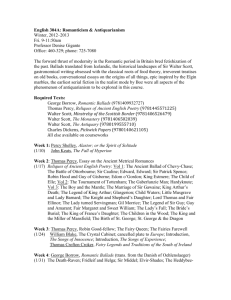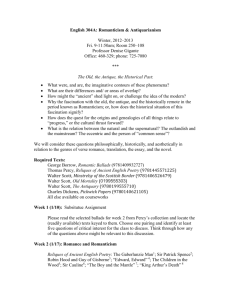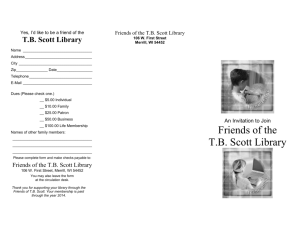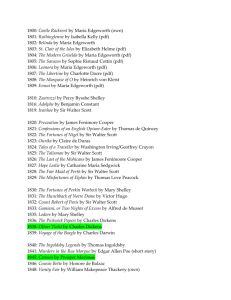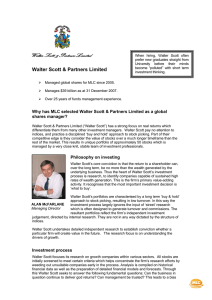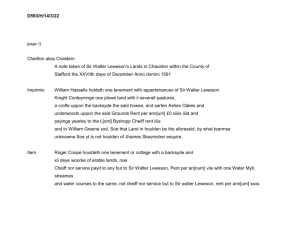Document
advertisement
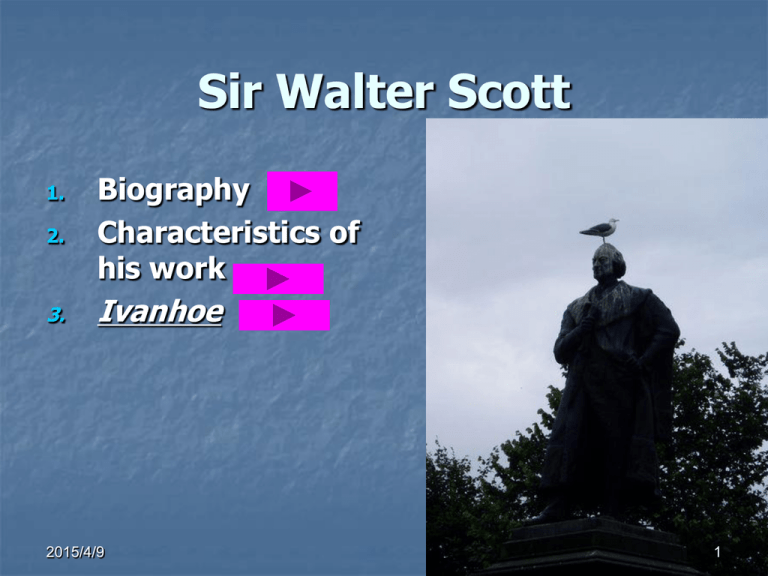
Sir Walter Scott 2. Biography Characteristics of his work 3. Ivanhoe 1. 2015/4/9 1 Biography Sir Walter Scott (1771 ~ 1832) was born of a lawyer's family in Edinburgh, Scotland on August 15, 1771. His interest in the old Border tales and ballads was started by his grandmother who was quite good at telling stories about the old border feuds, and was further stimulated by Thomas Percy's (1729 ~ 1811) Reliques of Ancient English Poetry (1765) and by the study of the old romantic poetry of France and Italy and of the modern German poets. 2015/4/9 2 Biography In 1802 ~ 1803, he published The Minstrelsy of the Scottish Border in three volumes . in 1805 appeared his first considerable original work, the romantic poem The Lay of the Last Minstrel, which was enthusiastically received by the public. Sir Walter Scott died in 1832, which was greatly hastened by his hard work of writing more novels to clear off his debt. 2015/4/9 3 Characteristics of his work 1.historical novels 2.the founder and great master of the historical novel 3. based on the history of Scotland, mainly including Waverley (1814) Guy Mannering (1815) Old Mortality (1816) Rob Roy (1817) The Heart of Midlothian (1818) 2015/4/9 4 Characteristics of his work on English history Ivanhoe (1819) The Monastery (1820) The Abbot (1820) Kenilworth (1821) The Fortunes of Nigel (1822) Woodstock (1826) Peveril of the Peak (1823) 2015/4/9 5 Characteristics of his work on the history of France and other countries on the European Continent Queutin Durward (1823) St. Ronan's Well (1823) 2015/4/9 6 Characteristics of his work the tribal mode of life preserved in the highlands, the practices of feudal society on the country estates of large landowners, and the early ways of capitalism in the big cities The fate of the individuals are closely interwoven with historical events He combines historical facts with romantic imagination. Scott's literary career marks the transition from Romanticism to Realism in English literature of the 19th century. 2015/4/9 7 Ivanhoe a purely English subject The central conflict is the struggle of the Anglo-Saxon peasantry against their oppressors the Norman lords. A minor conflict is the struggle between Richard I and his brother Prince John. vivid descriptions of various strata of people 2015/4/9 8
